Punctual to the minute, Chiwetel Ejiofor walks towards the pub where we’ve arranged to meet, wearing a long, wind-ballooned overcoat, his takeaway coffee thrust out like a compass. The actor ploughs right by – gets a couple of crossings down the road before I can catch him and lead him back. He got confused, Ejiofor explains, because he knew this pub when it had a different name. It’s one of those places that’s always being emptied out and painted differently, given a new identity on a proprietor’s whim, subject to the kind of perpetual reinvention that an actor, more than most, might appreciate. Ejiofor is between characters this week, and a bit stressed about it.
The Guardian’s product and service reviews are independent and are in no way influenced by any advertiser or commercial initiative. We will earn a commission from the retailer if you buy something through an affiliate link. Learn more.
Only days ago he was on a film set in Hollywood, bearded and sharp-suited as an FBI agent in a movie called The Secret in Their Eyes. He kissed Nicole Kidman beside a car that had exploded and then he got on a flight to London, shaved, put on his overcoat, and checked in at the National to begin intensive rehearsal on a production called Everyman. It will open this month, a reimagining of a 500-year-old morality play, directed by Rufus Norris (his inaugural play as the National’s artistic director). “We go up in a few weeks,” says Ejiofor, frowning, “and I want the show to be special, obviously.”
In the original, Everyman reads as a thorny, preachy little work about squaring up to death. We meet a character called Everyman, who meets Death, and after some handwringing (lots of thous and thys and thines) it’s all over in 30 pages. The new version, to be staged in the National’s giant Olivier theatre, has been scripted by Carol Ann Duffy and sounds spunkier, more substantial. There are songs, dance numbers, what the show’s director of movement, Javier De Frutos, promises will be “perilous” stage design. Ejiofor has spent significant time already, he tells me, 50ft above the theatre floor, suspended upside down. “And being at the very top of the Olivier,” he says, “feels like being in outer space.”
We settle in a corner of the pub, next to a shelf of boxed board games. Under his coat, Ejiofor has on a thin, grey jumper, the sleeves rolled up and brilliant sweat circles showing under his arms whenever he unfolds and refolds them. He has the settled good looks of somebody who’s comfortable in their skin, a severity of expression softened when you glimpse the childishly wonky tooth in his lower rack. He has a deep and profound voice – ideal, I imagine, for making himself heard by an audience, even from 50ft up, but kind of intense.
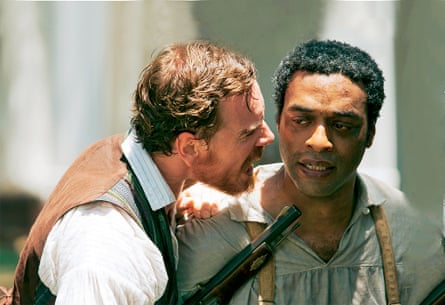
Ejiofor has a reputation for this: intensity. A year ago, he was nominated at the Oscars and won a Bafta, after playing the lead in Steve McQueen’s landmark movie about 19th-century slavery, 12 Years A Slave, and at the time Ejiofor found the jumbling of serious subject matter with awards-season silliness quite tricky. He was, by his own account, worried about being “the guy at the party who was constantly talking about man’s inhumanity to man”. In the pub, we cut straight to the heavy stuff, tearing through karma (he doesn’t believe in it) and God (he’s not sure), touching on capitalism, nuclear weapons, environmental damage, even poor animal husbandry (“That’s not the right size for a chicken! We know that, we’ve seen chickens, and still we eat it!”).
Conversation with Ejiofor is like this, interesting and rapid and ardent and almost entirely impersonal, everything related outward to the world where it can be. Why does he think Norris cast him as an everyman? “It almost doesn’t matter who you cast, in a sense, because he’s just a representation of humanity.”
Ejiofor’s castmates at the National tell me that, during breaks in rehearsals, surprisingly heavyweight chats have been taking place. In the show, Ejiofor portrays a complacent high-flier, feeling good about life until he’s confronted by Death, and told: time’s up, prepare to be judged. A journey ensues in which he must find someone who’ll advocate for him before God and plead the case for his existence. The actors I speak with say they’ve been considering who they’d get to argue for them in such a situation. A partner? A parent? I ask Ejiofor who he’d choose.
“Well,” he says, laughing nervously, “obviously I’ve been thinking about this a lot.”
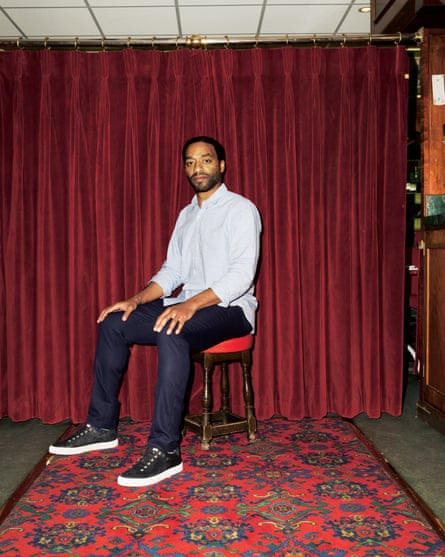
I know he lost his father when he was young, and that he used his time on the winners’ podium at the Baftas, last February, to tell his mother he loved her. Ejiofor appeared on red carpets, at the time, arm-in-arm with a Canadian model called Sari Mercer. Which of them knows Chiwetel Ejiofor best?
He purses his lips. “I feel like… y’know… I think I would advocate for myself. That if I was taking Everyman’s journey, I probably wouldn’t bring anybody with me.”
Before meeting Ejiofor I was contacted by the press office at the National. “We can get you God on the phone. No, wait, Death, we can get you Death. We keep getting the two mixed up!” So I spoke to Death, better known as the actor Dermot Crowley, who described Ejiofor as “very intense” and “immensely likable… My gut feeling is that you would find it hard to find anyone who’d have a bad word to say about him.” Death was correct. The other cast and crew, on short but comprehensive acquaintance, say they’ve come to adore Ejiofor. “Lovely, encompassing, gorgeous,” says Sharon D Clarke, a co-star. “If he has any ego of great size he keeps it at home,” says Norris. De Frutos tells me that “with real stage actors the sense of ensemble is important. You cannot lead the ensemble and be a wanker.”
They all sound pleasantly surprised that, following the bluster around 12 Years A Slave, Ejiofor has signed on for this at all. The years after a career-boosting Oscar nomination are not, by Hollywood tradition, the years to step away from the machine and pull on a tracksuit for warm-ups in rehearsal room number one. “To my huge good fortune,” Norris says, “he was up for it.” Crowley guesses that, in the aftermath of a massive Oscar nomination, “Chiwetel would have been inundated with scripts, with offers of money, and to call a halt to that headlong rush seems very mature to me”. Crowley adds, loyally, “Of course he should’ve won the Oscar.”
In the pub, I ask Ejiofor what it was like being in contention for Best Actor. “It’s a thrilling time. It’s an experience that I of course will treasure.” He recalls how quickly the whole circus wound down at the end. “There’s this moment afterwards. You’ve had a crazy buildup to the Academy Awards, which happens on a Sunday night, then on Monday morning you’re like: ‘Where did everybody go?’ And you’ve got five emails. Instead of 500.”
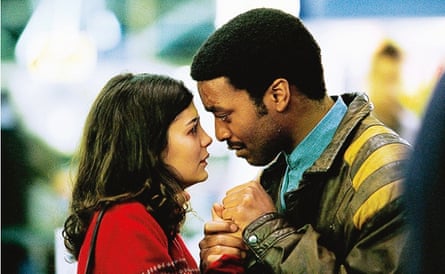
So Ejiofor wasn’t named Best Actor on the night (Matthew McConaughey was, for Dallas Buyers Club), but Steve McQueen was nominated for Best Director and 12 Years A Slave won Best Film. A kiss from co-star Brad Pitt still wet on Ejiofor’s cheek, he went out to party. “I was glad to get a kind of closure,” he says. “The Academy Awards mark a full stop on an experience. They say: ‘This is [12 Years A Slave] and we’re gonna go absolutely bat-shit crazy for it.’ Then on Monday morning we’re done. I like that – it reminds me of the Olympic Games or the World Cup. You win and it’s great. But then it’s time for the next one, and nobody cares if you won before.”
As a teenaged member of the National Youth Theatre, Ejiofor tells me, “I was a kid with this funny name. And people were like, ‘It’s going to be quite difficult for you to make any money as an actor.’” Later, at drama school, the name-change discussions came up again. If he stuck with Chiwetel, he was warned, he would play Africans for much of his career. He replied, “OK!” and went on to play Africans for much of his career, first a bit part in Steven Spielberg’s Amistad (1997), later a meaty screen lead as a Nigerian immigrant in Stephen Frears’ Dirty Pretty Things (2002). He played South African statesmen in Red Dust (2004) and Endgame (2009), and then, in 12 Years A Slave, Solomon Northup, an African American whose trials on a Louisiana plantation Ejiofor communicated unforgettably.
In the stage world he has vacuumed up awards since his early 20s; his Olivier-winning Othello, at the Donmar in 2007, is still thought by many critics to be the best of the decade. Such was the hype at the time that tickets did super-inflated trade on eBay. Screen appreciation took longer. The year he played Othello, Denzel Washington teasingly marked Ejiofor out for assassination, worried that this young actor would rise up Hollywood’s ranks to topple him. Frears, who had worked with both men, said of Washington, “Chiwe is the one he’s threatened by.” A year later, Ejiofor was slogging through David Mamet’s karate movie Redbelt (“a film with a black belt in pomposity,” wrote the Guardian) and after that Roland Emmerich’s puddle-deep disaster flick 2012. Finally, thanks to 12 Years A Slave, elevation.
“Wow, wow, wow, wow,” Ejiofor said at the Baftas, clutching his statue while Tom Hanks wolf-whistled from the stalls and Leonardo DiCaprio stood for a one-man ovation. Uma Thurman, presenting, bowed to him and Pitt was there with another kiss. All this, did it feel like a moment of acceptance, of promotion? “It’s interesting, it’s complicated,” he says. “I don’t know what all of these things mean yet. In terms of stratification, fame, renown, all these things, it’s like an ongoing process of trying to work out what it means.
“Obviously, I’m aware that people react slightly differently to me. It’s not like people were rude before, and suddenly they’re polite. But yeah, you notice a slight shift, that people are slightly more aware of you – in the street, or whatever.” He’s not comfortable, he says, with “this abstract idea of a weird power that has to do with being not anonymous… I put my pants on one leg at a time, just like I did before I was nominated for an Oscar. You know what I mean?”
Way back, when he was told that his too-black name would be a barrier to proper income, Ejiofor replied: “I don’t give a shit.” He tells me he has never cared about pay. And he feels much the same way about his industry’s racial politics. Campaigners who seek greater parity for black performers often invoke Ejiofor as an example of a black British actor who has thrived, just as others might if given the breaks. Lenny Henry mentioned Ejiofor several times while speaking to a parliamentary committee about equality issues last year. But the actor himself – and I’m paraphrasing – doesn’t give a shit.
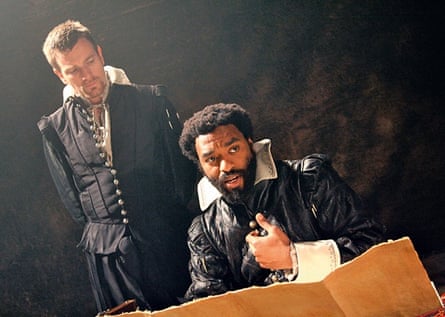
“I don’t spend that much time thinking about race in the context of the industry,” says Ejiofor. “I just don’t. I can’t speak on those things, because I haven’t thought about it that much.”
Sharon D Clarke, Ejiofor’s co-star in Everyman, and an established black actor, tells me: “As actors we’re trying to get work. We’re not writers, we’re not directors, we’re not producers – we need people to give us gigs, and there’s not so much that we can change from where we stand. Like Chiwetel, I’m not really a political animal. I love to perform and that’s where my energy goes.”
I ask Ejiofor if his reluctance to speak on the matter is down to the constraints of the actor’s place in the trade – whether he feels he has a position to protect. He leans forward in his seat. “I think I can say whatever I feel. I’m not tempered by the idea of, like, ‘Well, this would be hard for me, because of the career thing.’ This is what I was born to do and it’s what I’ve given my life to, and it’s not a question of looking at the opportunities. I don’t give a fuck about any of that! I’m not positioning myself,” he explains. “I’m not running for office. I’m an actor.”
Ejiofor is the child of Nigerian immigrants, refugees who moved to London to escape civil war in the 1960s. He was born in Forest Gate in the east and now lives in Islington in the north. He has a brother who works in fashion and two sisters, in medicine and journalism. He was privately educated and his first proper acting role, at secondary school, was either as Algernon in The Importance Of Being Earnest (the way his mother remembers it) or as Angelo in Measure For Measure (the way Ejiofor does). He likes to sail, reads books about sailing, and owns a boat that has an on-board shower.
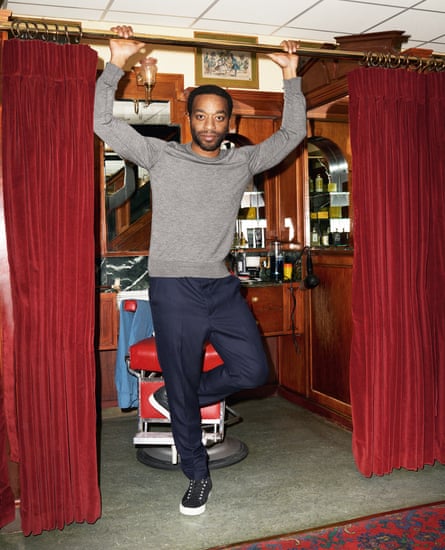
Beyond this, there is remarkably little that is public knowledge about Ejiofor’s life. He goes to awkward lengths to keep it that way. When he was invited on to David Letterman’s US chat show, a couple of years ago, discussion about the boat, even, was strained. Beside me in the pub he goes through a whole routine when I ask a question that is too personal. (It’s about whether he expects to have children.) Ejiofor announces he needs a new coffee; moves off to order it; and when he returns and I remind him what we were discussing he grins and says, “I was avoiding your question. You didn’t spot that?”
He says, “I just want people to see the work that I do. I don’t think they should be concerned about whom I’m sleeping with or what all the rest of the aspects of my life are. I don’t want to be a celebrity. I don’t have any interest in that. In fact, it’s almost the opposite of what I want.” He sits back and sips his coffee, one he never really wanted in the first place, considering what he’s just said. “Is that true?” Ejiofor asks himself. “Let me think.”
Put it this way, he decides, “I don’t want to be known as Chiwetel, I want to be known as the actor-who-is-Chiwetel, if you follow my distinction there. Doesn’t everybody want that, to be known by reputation, rather than the fact of X, Y or Z?”
There’s one deeply personal thing about Ejiofor’s life that is known. His father died when the actor was 11, an accident that sounds only more terrible on the occasions that Ejiofor, over the years, has agreed to discuss it. There was a car accident on a motorway in Lagos while the family were on holiday. Ejiofor, a passenger in the vehicle, was thrown clear, suffering serious head injuries and broken wrists. His mother, in England and pregnant at the time, was only told about the death of her husband once she’d flown out to be at the hospital. So we know almost nothing that’s personal about Ejiofor, except something enormous. With his sleeves rolled up today I can see the scars on his wrists. “At a certain point I just let go of trying to not talk about it,” he says.
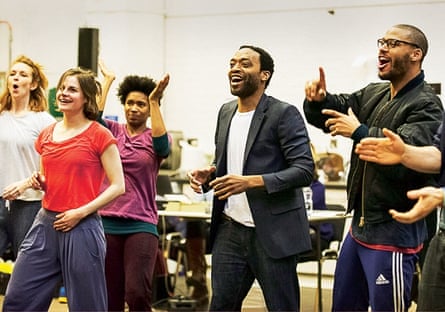
In Everyman he plays a character who is scared of dying; who embarks on a journey to thwart death. I ask Ejiofor if, after his experiences as a young man, death has lost its power to frighten him. He says, “When you’re young and you encounter the reality of death – especially if it’s not something you’ve been prepared for, because there’s not been an illness – it’s just something that arrives out of the blue, Boom!, this person is gone, deal with it. As you process that, when you’re 11 or 12, yeah, over time it loses its scare value, yeah. But you are stalked by it. It’s in your cortex – the knowledge that this thing is waiting at any moment to completely revolutionise your universe by taking away the people that you care most about. For no reason, randomly.”
He nods several times and says: “Fuck yeah, if you go through that as a child, you start to contextualise your experience on earth.”
Years before she was widowed, he says, his mother experienced trauma at a similar age. She was a teenager when the Biafran war forced her family out of their home in northern Nigeria. After a succession of bereavements she had to take charge of their sudden relocation, aged 14. “My mother and I, we had experiences in our very formative years of randomness and chaos. And that meant we took a viewpoint on the way that the world is. As I get older, and she gets older, it put us in similar places in our psychology, I think. I’m always very interested in her point of view, because often it echoes mine. Not because ‘the apple doesn’t fall very far from the tree’, but because of that echo in our experiences.”
When earlier I asked who he’d approach to speak on his behalf, should there ever be an Everyman-style reckoning, I expected Ejiofor to say his mother. They obviously share an unusual bond. But he insisted he’d advocate for himself.
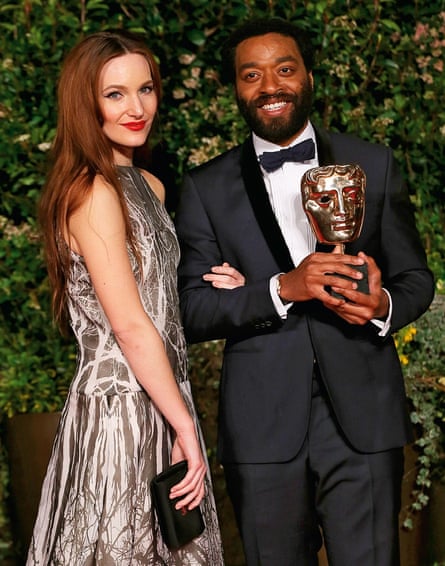
Is he a loner? “Yeah, I think so. I love the company of people. But ultimately I feel like I’m self-reliant, yeah.” Has that feeling deepened as he’s got older? “I think I’ve always been that way. I don’t think I’ve ever required the company of people, in order to feel good or to feel access to the world. It’s something that to me, when it’s good, it’s a bonus. Like great art or great music – it’s nice that it’s there. But if it’s not there, y’know, it’s not like everything falls away. I can completely exist without it, be satisfied and happy.”
None of this, he adds, “is to say that I don’t know what other people are for. I understand. It’s just…” He tries to think of a way to express what he wants to say, and mentions a book about sailing he’s been reading, The Long Way, by a French writer called Bernard Moitessier. Moitessier’s reasons for sailing, says Ejiofor, resonate with his own. “He talks about the idea of sitting on your boat and knowing the thousand secrets that only you and it share. I think that’s like our experience of life. People can come on to your boat and hang out. Cook a meal or whatever. Have a great time. And then when they leave, that’s it – it’s just you and the boat.”
- Everyman opens at the National theatre, 22 April. It will be broadcast live to over 550 cinemas around the UK on 16 July. Visit ntlive.com to find your nearest venue.
- Clothes credits, top: Jersey blazer, oliverspencer.co.uk. Shirt, ourlegacy.se. Seated: Shirt, oliverspencer.co.uk. Trousers, by Ami from liberty.co.uk. Shoes, ourlegacy.se. Standing: Long-sleeve top, dolcegabbana.com. Trousers, by Ami from liberty.co.uk. Shoes, ourlegacy.se. Styling: Helen Seamons. Grooming: Tracie Cant at Premier Hair and Makeup, using Bumble and Bumble. Shot on location at trumpers.com.
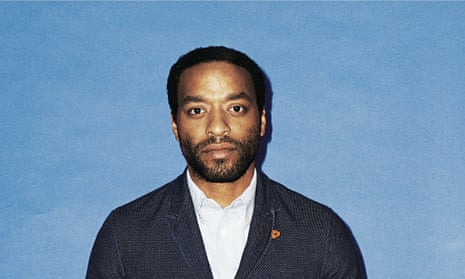
Comments (…)
Sign in or create your Guardian account to join the discussion